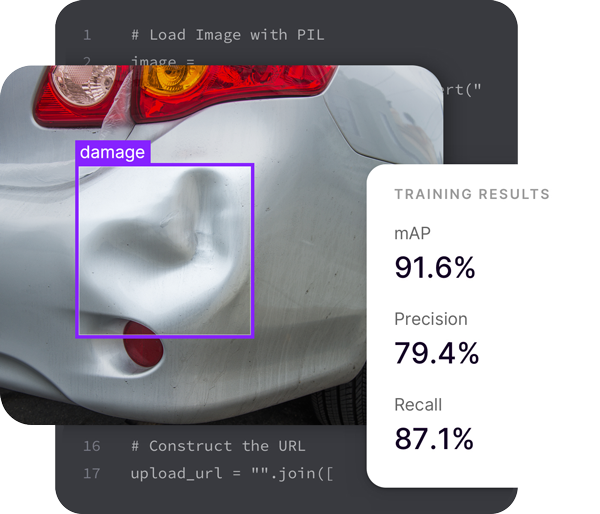Using Autodistill, you can compare OWLv2 and Kosmos-2 on your own images in a few lines of code.
Here is an example comparison:

To start a comparison, first install the required dependencies:
Next, create a new Python file and add the following code:
Above, replace the images in the `images` directory with the images you want to use.
The images must be absolute paths.
Then, run the script.
You should see a model comparison like this:

When you have chosen a model that works best for your use case, you can auto label a folder of images using the following code:
.
Both
and
are commonly used in computer vision projects. Below, we compare and contrast
and
Using Autodistill, you can compare OWLv2 and Kosmos-2 on your own images in a few lines of code.
Here is an example comparison:

To start a comparison, first install the required dependencies:
Next, create a new Python file and add the following code:
Above, replace the images in the `images` directory with the images you want to use.
The images must be absolute paths.
Then, run the script.
You should see a model comparison like this:

When you have chosen a model that works best for your use case, you can auto label a folder of images using the following code:
OWLv2 is a transformer-based object detection model developed by Google Research. OWLv2 is the successor to OWL ViT.
How to AugmentHow to LabelHow to Plot PredictionsHow to Filter PredictionsHow to Create a Confusion MatrixKosmos-2 is a multimodal language model capable of object detection and grounding text in images.
How to AugmentHow to LabelHow to Plot PredictionsHow to Filter PredictionsHow to Create a Confusion Matrix
Join 250,000 developers curating high quality datasets and deploying better models with Roboflow.
Get started